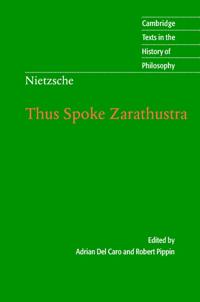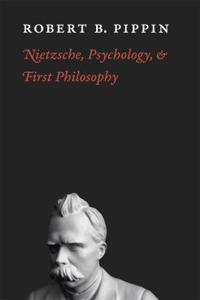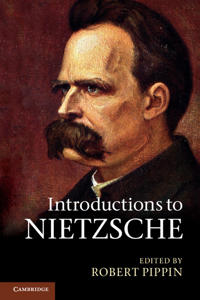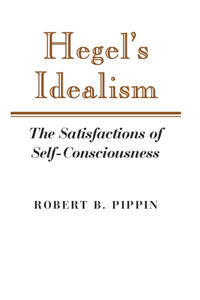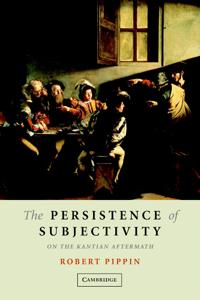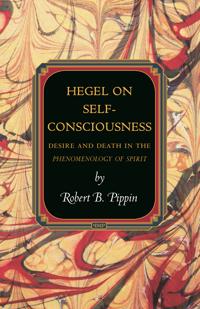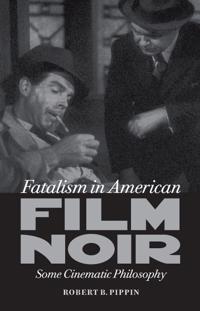Thus Spoke Zarathustra (Inbunden)
avAdrian Del Caro, Robert B. Pippin, Robert B. (EDT) Pippin
ISBN: 9780521841719 - UTGIVEN: 2006-07Nietzsche regarded 'Thus Spoke Zarathustra' as his most important work, and his story of the wandering Zarathustra has had enormous influence on subsequent culture. Nietzsche uses a mixture of homilies, parables, epigrams and dreams to introduce some of his most striking doctrines, including the Ove[...]
Nietzsche, Psychology, and First Philosophy (Pocket)
avRobert B. Pippin
ISBN: 9780226669762 - UTGIVEN: 201111Friedrich Nietzsche is one of the most elusive thinkers in the philosophical tradition. Nonetheless, certain readings of his work have become standard and influential. In this major new interpretation of Nietzsche, Robert B. Pippin challenges various traditional views, taking the philosopher at his [...]
Introductions to Nietzsche (Pocket)
avRobert B. Pippin
ISBN: 9780521189910 - UTGIVEN: 201203Friedrich Nietzsche (1844-1900) is one of the most important philosophers of the last two hundred years, whose writings, both published and unpublished, have had a formative influence on virtually all aspects of modern culture. This volume offers introductory essays on all of Nietzsche's completed w[...]
Hegel's Idealism (Pocket)
avRobert B. Pippin
ISBN: 9780521379236 - UTGIVEN: 1989-03This is the most important book on Hegel to have appeared in the past ten years. Robert Pippin offers a completely new interpretation of Hegel?s idealism, which focuses on Hegel?s appropriation and development of kant?s theoretical project. Hegel is presented neither as a precritical metaphysician n[...]
The Persistence of Subjectivity (Häftad)
avRobert B. Pippin
ISBN: 9780521613040 - UTGIVEN: 200505The Persistence of Subjectivity examines several approaches to, and critiques of, the core notion in the self-understanding and legitimation of the modern, 'bourgeois' form of life: the free, reflective, self-determining subject. Since it is a relatively recent historical development that human bein[...]
Hegel on Self-Consciousness (Inbunden)
avRobert B. Pippin
ISBN: 9780691148519 - UTGIVEN: 2010-12In the most influential chapter of his most important philosophical work, the "Phenomenology of Spirit", Hegel makes the central and disarming assertions that 'self-consciousness is desire itself' and that it attains its 'satisfaction' only in another self-consciousness. "Hegel on Self-Consciousness[...]
Hegel on Self-consciousness (Pocket)
avRobert B. Pippin
ISBN: 9780691163413 - UTGIVEN: 2014-11In the most influential chapter of his most important philosophical work, the Phenomenology of Spirit, Hegel makes the central and disarming assertions that "self-consciousness is desire itself" and that it attains its "satisfaction" only in another self-consciousness. Hegel on Self-Consciousness pr[...]
Fatalism in American Film Noir (Inbunden)
avRobert B. Pippin
ISBN: 9780813931890 - UTGIVEN: 2012-02The crime melodramas of the 1940s known now as film noir shared many formal and thematic elements, from unusual camera angles and lighting to moral ambiguity and femmes fatales. In this book Robert Pippin argues that many of these films also raise distinctly philosophical questions. Where most Holly[...]
Fatalism in American Film Noir (Pocket)
avRobert B. Pippin
ISBN: 9780813934020 - UTGIVEN: 2013-02The crime melodramas of the 1940s known now as film noir shared many formal and thematic elements, from unusual camera angles and lighting to moral ambiguity and femmes fatales. In this book Robert Pippin argues that many of these films also raise distinctly philosophical questions. Where most Holly[...]
Nietzsche (Pocket)
avAdrian Del (EDT) Caro, Robert B. (EDT) Pippin, Friedrich Wilhelm Nietzsche
ISBN: 9780521602617 - UTGIVEN: 2006-07Nietzsche regarded 'Thus Spoke Zarathustra' as his most important work, and his story of the wandering Zarathustra has had enormous influence on subsequent culture. Nietzsche uses a mixture of homilies, parables, epigrams and dreams to introduce some of his most striking doctrines, including the Ove[...]

